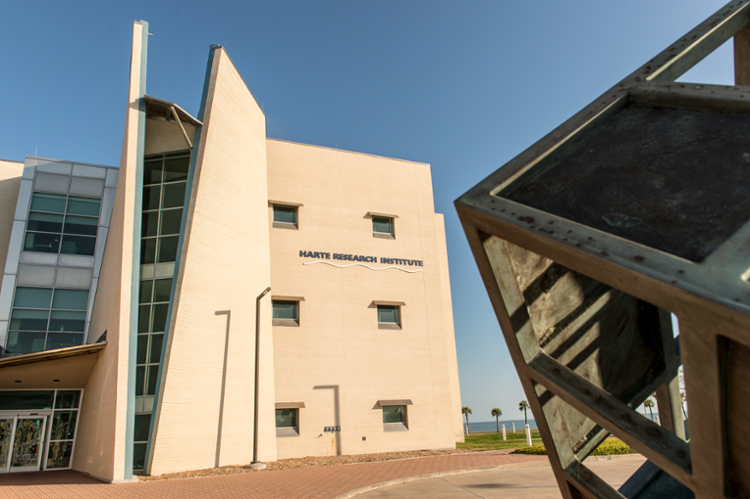UAS Technology Draws Undergraduates Nationwide to Island University
CORPUS CHRISTI, Texas – Top tech companies, like Amazon, are using unmanned aerial systems (UAS) – better known as drones – to revolutionize parcel delivery service, while medical non-profits are using drones to drop life-saving supplies to those in third-world countries. Thanks to increasing market availability and affordability, recreational drone usage is also on the rise, however, it’s not just fun and games when it comes to unmanned
That’s where Texas A&M University-Corpus Christi comes in.
As one of six Federal Aviation Administration (FAA) UAS test sites, the Island University recently received a $360,000 grant from the National Science Foundation to offer a unique 10-week summer Research Experience for Undergraduates (REU) focusing on applied computing research in UAS. This year’s program recruited 10 high-achieving students from six institutions around the nation to seek solutions to facilitate
“As an FAA approved UAS test site developing and applying UAS technology to solve problems of marine and coastal environments, our program is unique in the nation.,” said Dr. Dulal Kar, associate professor in the Department of Computing Sciences. “Program participants are excited and engaged as they develop their own algorithmic solutions and test them in a real environment in a visible manner.”
Five expert faculty mentors from the Department of Computing Sciences at A&M-Corpus Christi guided students on different research projects like using drones to predict crop outcomes, developing autonomous UAS for shoreline tracking, improving UAS processes for crop disease detection, and creating new algorithms for UAS for collision and
Jesus Nunez, a fifth-year computer science student at California State University Dominguez Hills, was mentored by Dr. Ajay Katangur on the project titled, “Protecting the UAS against Collisions and Cyberattacks.”
“It’s been amazing. The experience gained both while working on the project and outside of school has been unforgettable and unlike
During the program, Nunez analyzed drones for any potential vulnerabilities in their protocols and security. With his peer, he worked closely on the AR Parrot 2.0, 3DR Solo, and the DJI Phantom 4 drones – attempting to hack into them, fly them, or work with the hardware.
“Coming to the Island University has helped me grow as a person and as a student,” said Nunez. “This experience taught me to be much more professional and that is something that will stick with me for years to come. Everything I learned here will definitely be used in any future projects or industry.”
To foster a stimulated and focused learning environment, REU students received a stipend of $500 per week, plus a housing, meal, and travel allowance. The NSF grant will extend the REU program at Texas A&M-Corpus Christi for another two summers.










